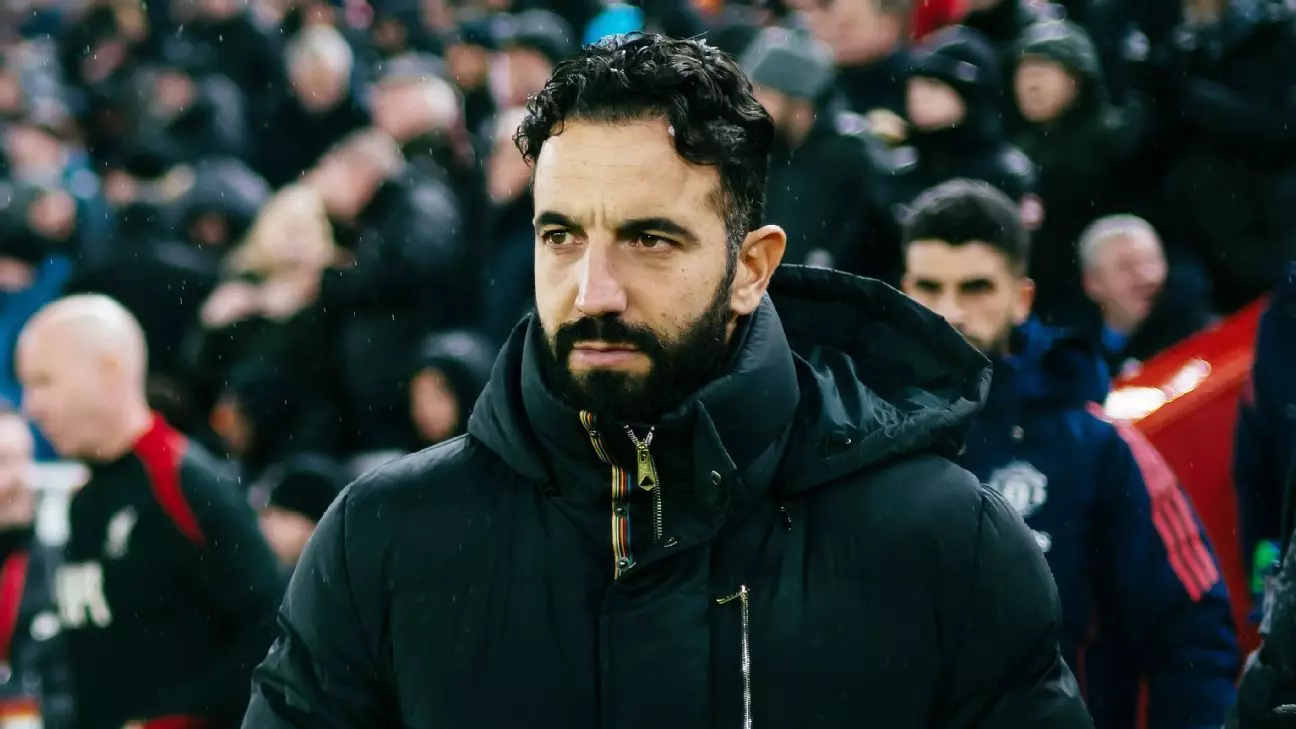In November, football enthusiasts watched as Ruben Amorim stepped into one of the most demanding managerial roles in the sport—taking over Manchester United. His predecessor, Erik ten Hag, had been dismissed after a disheartening spell left the team languishing in 14th place in the Premier League. Amorim entered the scene not only with a wealth of experience from his tenure at Sporting CP, where he earned two league titles in as many seasons, but also with the heavy expectations inherent to managing a club of United’s stature. The pressure was palpable; Amorim would need to turn the tide quickly in a highly competitive environment.
Reflecting on his first few months, Amorim characterized this phase as “the most intense” yet “the most special” of his managerial journey. Through an honest dialogue with TNT Brasil, he acknowledged that the duality of the situation—high stakes layered with tremendous opportunity—created a unique experience. The intensity of the Premier League is notorious, and for someone stepping into Manchester United in such turbulent times, the challenge was amplified. With six defeats in his opening 11 games, Amorim’s start was indeed historical but in the most unfavorable sense, marking the worst results for a United manager since 1932. This statistic casts a long shadow, accentuating the uphill battle he faces.
The mounting pressure took its toll. Following a painful 3-1 defeat to Brighton, Amorim made headlines for his frank assessment of the team, commenting on its performance as “the worst, maybe, in the history of Manchester United.” Such blurted revelations can be a double-edged sword in management. While honesty is often lauded, there exists a fine line between transparency and demoralizing a squad already struggling with confidence. The aftermath of his comments coincided with some positive results, as United managed to secure victories in their next two fixtures, lifting them to 12th place.
This turnaround emphasized a critical point in football management: the importance of maintaining a sense of perspective. Amorim reflected on the significance of focusing on improvement instead of fixating on league standings, even amidst adversity. His philosophy underlines that growth is a process—one that requires patience and resilience.
Beyond tactical adjustments, Amorim is also navigating complex interpersonal dynamics within the squad. His recent chastisement of Marcus Rashford for perceived underperformance highlights a crucial aspect of leadership—demanding commitment and consistency from all players. His candid admission, “I will put [63-year-old goalkeeper coach Jorge] Vital on before I put a player that doesn’t give the maximum every day,” sent ripples through Old Trafford, suggesting that no player is exempt from expectations, regardless of their stature or previous achievements.
Amorim’s approach to accountability may serve as a wake-up call to not only Rashford but the entire team. By setting clear standards, he cultivates an environment where performance and dedication are non-negotiable. In his mind, success depends upon adherence to these criteria, fostering a culture of excellence that is fundamental to a club with the ambitions of Manchester United.
Talent management extends to considerations for veterans like Casemiro, whose diminished playing time under Amorim has sparked speculation. The experienced midfielder is celebrated for his past contributions, yet it seems that Amorim’s vision for the squad prioritizes a blend of youth and stamina to meet the league’s physical demands. The evolving nature of the game necessitates adaptability, and Amorim’s acknowledgment of Casemiro’s evolving role speaks volumes about his strategic mindset.
The road ahead for Ruben Amorim is fraught with challenges but also imbued with the potential for growth. His management philosophy blends honesty with the need for accountability, setting the stage for a footballing renaissance at Manchester United. The journey may be arduous, marked by scrutiny and expectations, but Amorim’s commitment to both his team and the club’s legacy will prove vital as he seeks to restore their competitive edge. As fans and observers alike anticipate how this narrative unfolds, one thing remains clear: in the world of football, especially at a club as storied as Manchester United, every moment is ripe with opportunity.


Leave a Reply